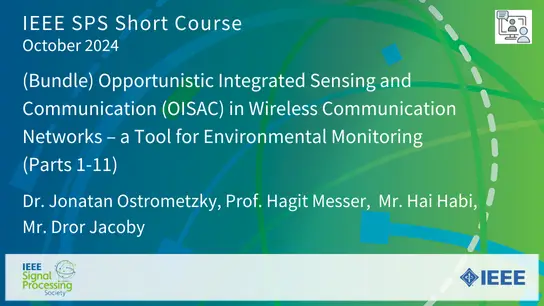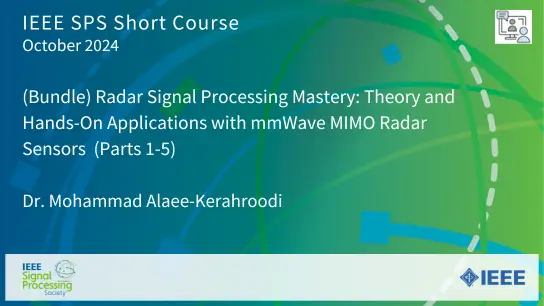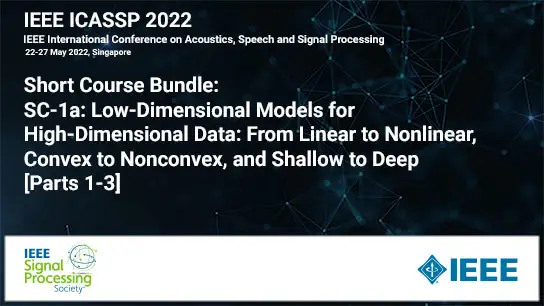Education Short Course: SC-5c: Speech Technology for Health: From Technical Foundations to Applications [Part 3]
Chi-Chun Lee, National Tsing Hua University, Taiwan; Prasanta Kumar Ghosh, Indian Institute of Science, India; Yu Tsao, Yi-Chiao Wu, Hsin-Min Wang, Academia Sinica, Taiwan
-
Members: FreeSPS
IEEE Members: $11.00
Non-members: $15.00Length: 03:44:00
The promise of speech technology for health applications is profound and is becoming more mature recently. Advancements in core speech technologies and their integration – ranging from automatic speech recognition (ASR), text-to-speech (TTS)/voice conversion (VC), speech enhancement (SE), and states and traits recognition from paralinguistics – offer novel tools for both scientific discovery and creating innovative solutions for clinical screening, diagnostics, intervention supports and beyond. Credited to the potential for widespread impact, research sites across all continents are actively engaged in this societally important research area, tackling a rich set of challenges, resulting in a large body of technical research, and leading to grounded system development and deployment. Major speech processing conferences such as ICASSP and INTERSPEECH increasingly feature regular and special sessions on research of speech for health applications – on a variety of topics such as disordered and atypical speech analysis, mental and behavioral health modeling, and assistive systems via speech processing, and the same trend also happens in key journal publication venues such as IEEE Transactions on Audio, Speech and Language Processing, IEEE Journal of Selected Topics on Signal Processing, Computer Speech and Language, Speech Communication and so on. Given the broad and integrative nature, while there is a blooming of research works, there has not been a dedicated course for this emerging and important topic. The proposed short course will serve a timely need to put together cohesive educational materials on speech for health for the SP community. Specifically, it would include broad-to-specific materials that cover overviews on the nuts and bolts of core speech technology, details of algorithmic approaches with connection to health-related topics, a survey on recent advancements of this interdisciplinary effort, and a hands-on exercise. We believe that this short course would help lay out the needed foundational knowledge for the SP community and beyond and would encourage more students, engineers, and even scientists and clinicians to engage in this research topic.



